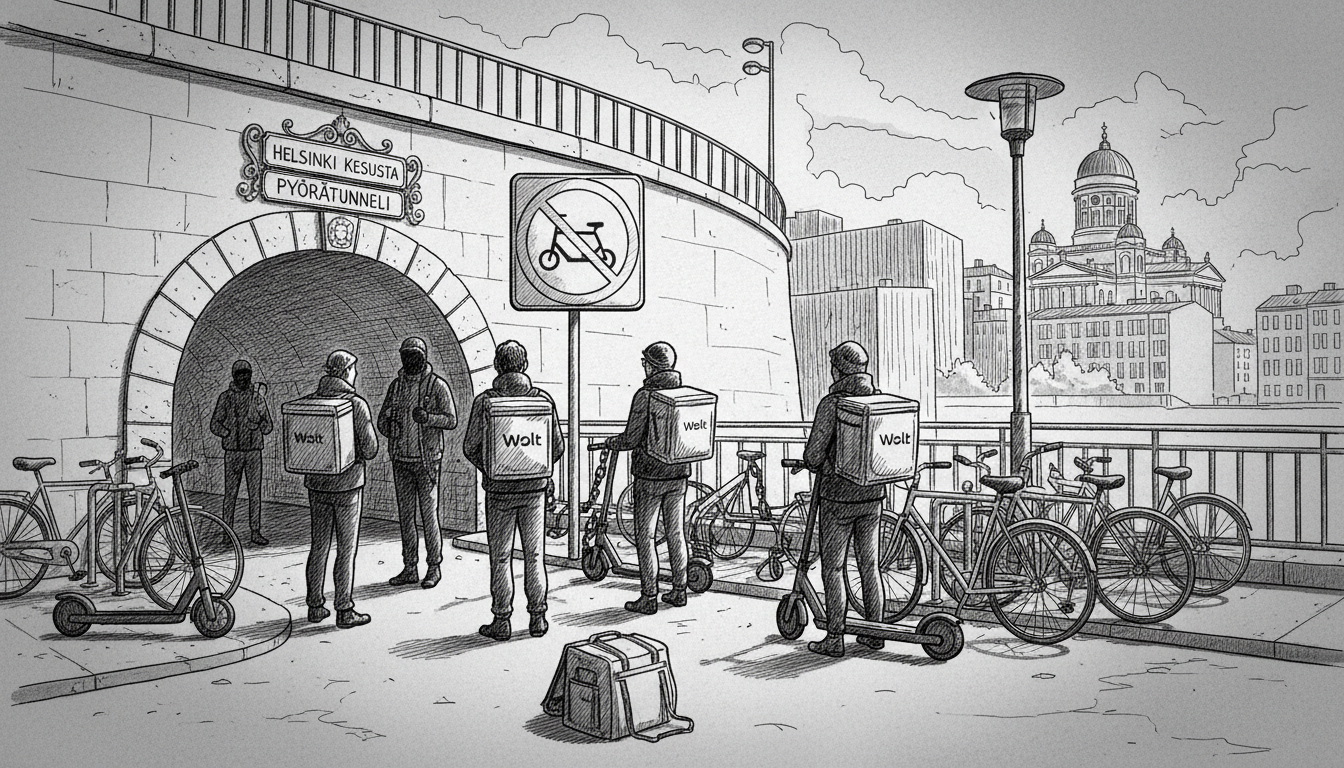Helsinki's Kaisaniemi Tunnel bike park has implemented new restrictions that complicate work for food delivery riders. City authorities banned electric mopeds and scooters from the facility, forcing couriers to find alternative storage.
Wolt delivery driver Sandeep Biswakarma maintains his e-bike at the tunnel park. He previously stored his bicycle there too, but the new rules prevent that. Biswakarma suspects the ban specifically targets food delivery workers.
City Traffic Ltd prohibited parking and storing electric mopeds, scooters, and similar electric vehicles in the bicycle park. Regular e-bikes remain permitted.
Biswakarma has received removal orders from security guards despite riding an e-bike, not a scooter. His heavy, wide-tired electric bicycle clearly qualifies as a bicycle under the rules.
Electric scooters are primarily used by food delivery workers. The ban now requires them to locate other storage options for their vehicles.
This creates practical difficulties, Biswakarma explains. Many apartment buildings prohibit even storing bicycle batteries indoors. Leaving expensive bikes outside causes stress and sleep loss due to theft concerns, which are common among couriers.
Biswakarma acknowledges some justification for restrictions. Many electric scooters have appeared in the park, and sometimes riders leave excessive belongings around them. Still, he notes the problem lies with user behavior rather than the vehicles themselves.
City Traffic's property management director cited battery safety risks when explaining the ban to media. Park users see the situation differently.
Nobody leaves batteries here, Biswakarma states. Batteries are expensive, and couriers fear theft. They carry batteries back and forth between home and the city center.
Biswakarma would welcome company-provided storage and break rooms for Wolt couriers. Shafiul Alam, who prepares for lunch deliveries, also supports Wolt-organized break spaces.
That would be good for us, Alam says.
The several-month delivery veteran uses Kaisaniemi Tunnel bike park regularly. The new vehicle ban doesn't affect him since he rides an e-bike.
Alam chose his current bicycle for its lightness and fewer restrictions compared to electric scooters. For example, metro transport allows e-bikes but prohibits e-scooters.
Previously, some couriers stored delivery bags on the floor. Now they must keep them on their bicycles. That restriction makes sense since belongings occupy parking space, Alam notes.
The six-million-euro facility opened in June with capacity for approximately 900 bicycles. During off-peak cycling seasons, food delivery workers have been the primary users.
The situation highlights Helsinki's infrastructure challenges as gig economy workers and traditional cyclists compete for limited urban space.
